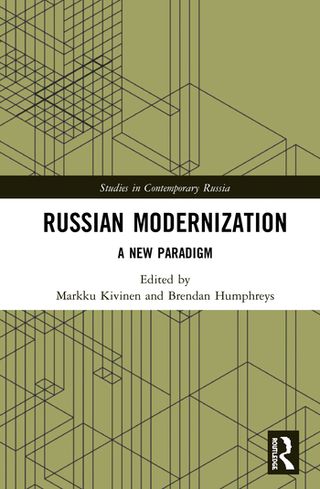?
Russian Modernization: A New Paradigm
Building on an original interpretation of social theory and an interdisciplinary approach, this book creates a new paradigm in the Russian studies. Taking a fresh view of Russia’s multiple experiences of modernization, it seeks to explain the Putin era in a completely new way.
This book explores the paradoxical and contradictory aspects of Russia, analyzing the energy-dependent economy and hybrid political regime, but also religion, welfare, and culture, and their often complex interrelations. Written by a community of both Western and Russian scholars, this book re-affirms the value of social science when confronting a society that has undergone enormous and costly systematic changes. The Russian elites see modernization narrowly as economic and technological competitiveness. The contributors to this volume see contemporary Russia facing a series of antinomies, which are macro-level dilemmas that cannot be abolished, either by philosophical mediation or by immediate political decisions. As such, they are the tension fields that constitute choices for various competing agencies.
This book will be of interest to scholars and students of Russian studies, transition studies, sociology, social policy, political science, energy policy, cultural studies, and stratification studies. Professionals involved in energy, ecology, and security policy will also find this publication a rich source
